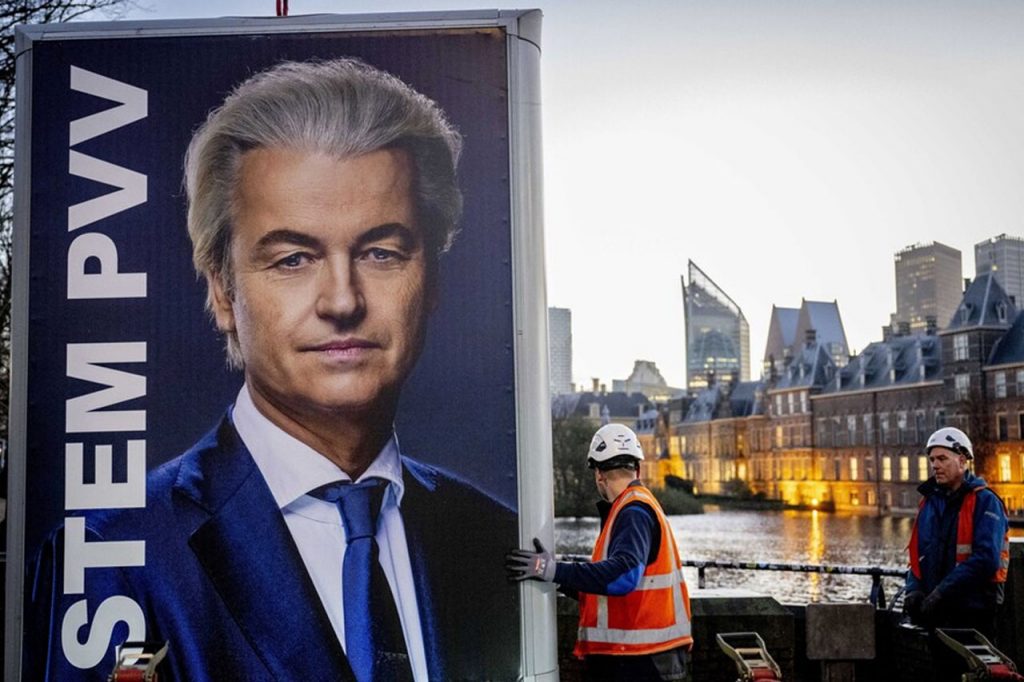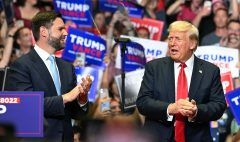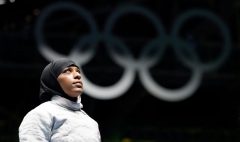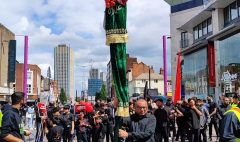Dutch Muslims fearful for future after ‘shocking’ election results
November 23, 2023 2024-01-21 12:54Dutch Muslims fearful for future after ‘shocking’ election results

Dutch Muslims fearful for future after ‘shocking’ election results
Scale of Netherlands vote for Geert Wilders’ far-right party and its anti-Islam policies causes concern over rights and safety.
For many across the Netherlands, news that Geert Wilders’ far-right, anti-Islam party had emerged with the most votes in Wednesday’s election set off alarm bells over what might lie ahead in a country once regarded as a beacon of tolerance.
“These election results are shocking for Dutch Muslims,” said Muhsin Köktas of the Contact Body for Muslims and Government. “We did not expect such a party with a program that is against the basic principles of the rule of law to be so big.”
At the helm of the Party for Freedom (PVV), Wilders has long taken aim at Islam, describing it as a fascist ideology of “a retarded culture” and a “backward religion”. Since 2004, he has been under police protection and in 2016 was convicted of discrimination after he called Moroccans “scum” at a campaign rally.
Though he sought to soften his anti-Islam rhetoric in the lead-up to the elections, the party’s manifesto includes a ban on mosques, the Qur’an and Islamic headscarves in government buildings. As his party’s gains became clear on Wednesday evening, Wilders vowed to push policies “within the law and constitution”.
The apparent change in tone was of little comfort to Köktas. “We have great concerns about the future of Islam and Muslims in the Netherlands,” he said.
He hoped that people from across the Netherlands would join together to defend and protect the rule of law. “This is absolutely necessary, not only for the future of Muslims but also for the future of the peaceful Dutch society,” he added.

With nearly all votes counted, preliminary results from Wednesday’s election showed PVV taking 37 seats, more than any other party.
There’s little guarantee that Wilders will be able to cobble together enough support to lead a government with a majority in the Netherlands’ 150-seat parliament.
If he does manage to do so, however, the coalition will have to rely on at least three other parties, meaning the most extreme parts of PVV’s manifesto, such as the banning of the Qur’an and mosques and a total halt in accepting asylum seekers, will likely be tempered.
At the Dutch Council for Refugees, the hardline stance on asylum was met with dismay. In a statement, the NGO noted it was “very concerned about the people who have to flee war and violence, now that a party that unequivocally advocates an asylum freeze has become the largest in the Netherlands”.
The council added that it was impossible to ignore the VVD and NSC. The two parties also advocate for fewer asylum seekers, and also received a significant number of votes as people in the Netherlands grapple with issues such as a housing shortage and the climate crisis.
“We ask the next cabinet not to get bogged down in symbol politics that fuel polarization,” said Frank Candel, chair of the council’s board. “But to get to work on solutions that address the concerns of citizens and are good for refugees.”
Source: The Guardian








